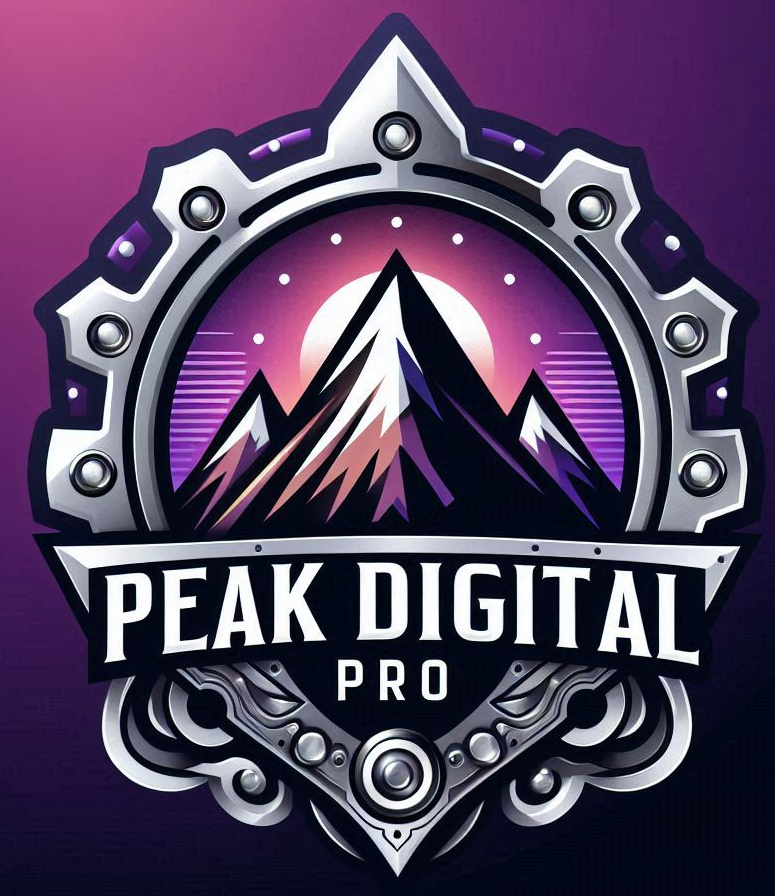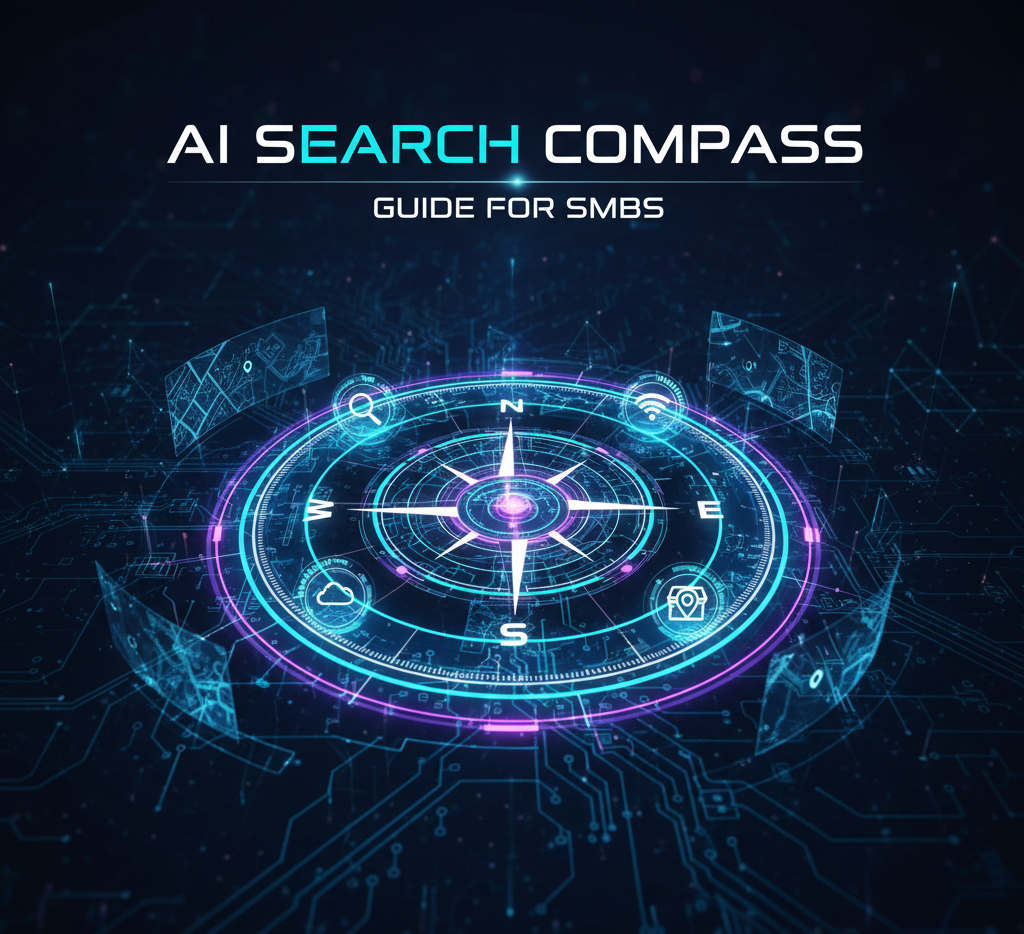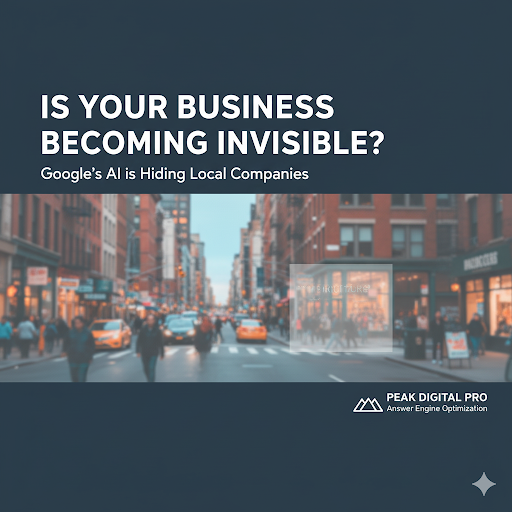Small Business Website Effectiveness and the Impact of AI Search Implementations
Small Business Website Effectiveness and the Impact of AI Search Implementations

Small business owners are continually seeking to maximize the value of their online presence. Their questions about website effectiveness are fundamentally rooted in the need for a measurable return on investment (ROI) and a clear understanding of how their digital efforts translate into business growth. The recent advancements in Artificial Intelligence (AI) search, particularly Google's AI Overviews and AI Mode, are introducing significant shifts in the search landscape, compelling small businesses to re-evaluate their strategies.
Core Questions from Small Business Owners Regarding Website Effectiveness
The primary concerns for small business owners revolve around the tangible outcomes of their website:
Measuring ROI and Success:
- "Is my website actually generating leads and sales, or is it just an online brochure?"
- "What key performance indicators (KPIs) should I be tracking beyond just website traffic?"
- "How can I accurately calculate the ROI of my website and digital marketing efforts?"
- "Are there affordable analytics tools (like Google Analytics) that can help me understand user behavior and conversion paths?"
- "How does my website's performance stack up against competitors?"
Website Performance and User Experience (UX):
- "Is my website user-friendly and intuitive, encouraging visitors to stay and explore?"
- "Is it optimized for mobile devices, given the prevalence of mobile Browse?"
- "Does my website load quickly, or are slow speeds driving potential customers away?"
- "Does my website effectively convey my brand message and unique selling propositions?"
- "Are there any technical issues (broken links, outdated content) that are hindering the user experience?"
- "Is my website secure (SSL certificate, protection against cyber threats) to build trust?"
Lead Generation and Conversions:
- "How can I attract more qualified visitors to my website?" (This often leads to questions about SEO, content marketing, and paid advertising.)
- "Once visitors are on my site, how do I compel them to take the next step (e.g., fill out a form, make a call, purchase a product)?"
- "Is my website content engaging, informative, and tailored to my target audience's needs?"
- "Are there clear and compelling calls-to-action (CTAs) guiding users toward desired outcomes?"
- "What strategies can I implement to effectively convert website visitors into leads or customers?"
Search Engine Visibility (Pre-AI Search):
- "Will my website rank highly in Google search results for relevant keywords?"
- "What keywords should I be targeting to reach my ideal customers?"
- "Is my website technically optimized for search engines (site structure, meta descriptions, etc.)?"
- "How often should I update my content to maintain or improve my search rankings?"
Content and Credibility:
- "Do I have sufficient, high-quality content to address common customer questions and build authority?"
- "Is my content easy to consume and understand?"
- "Does my website foster trust and credibility (e.g., testimonials, reviews, case studies)?"
- "Am I leveraging social media effectively to drive traffic and engage with my audience?"
In the past, many of questions had straight forward ways to measure and answer. With the implementation of AI search and AI summaries the answers are increasingly difficult to concretely assess.
The Impact of AI Search Implementations (AI Overviews, AI Mode)
The advent of AI search features like Google's AI Overviews (formerly Search Generative Experience - SGE) and the broader "AI Mode" fundamentally alters the search landscape and introduces new complexities for small business owners. These implementations aim to provide direct, synthesized answers to user queries, potentially reducing the need for users to click through to individual websites.
1. Reduced Organic Clicks and Website Traffic:
- The "Zero-Click" Phenomenon: AI Overviews summarize information directly within the search results page, often answering user questions without requiring a click to a website. Studies indicate significant drops in organic click-through rates (CTR), with some reporting declines of 18% to 70% for certain types of queries. This is particularly impactful for websites that primarily offer straightforward informational content (e.g., "how-to" guides, definitions, simple FAQs).
- Prioritization of Direct Answers: AI Overviews often appear at the very top of the search results, pushing traditional organic listings further down the page, making them less visible and less likely to be clicked.
- Industry-Specific Impact: Industries heavily reliant on informational content, such as recipe blogs, health information sites, and educational platforms, have experienced some of the most substantial traffic declines.
- Informational vs. Transactional Queries: While informational queries are most affected, the impact can extend to transactional searches as well, as AI may summarize product comparisons or service details.
2. Shift in Visibility and Authority:
- Becoming a "Cited Source": The goal shifts from merely ranking highly to being cited as a source within AI Overviews. Being featured in these summaries can still drive brand awareness and trust, even if it doesn't directly lead to a website click.
- Emphasis on E-E-A-T (Experience, Expertise, Authoritativeness, Trustworthiness): AI models rely heavily on credible, high-quality, and trustworthy information. Websites that demonstrate strong E-E-A-T signals are more likely to be selected as sources for AI Overviews. This means investing in well-researched, accurate, and original content, backed by demonstrable experience and expertise.
- Beyond "Blue Links": Visibility is no longer solely about appearing in the traditional "blue link" results. It's about being present and authoritative wherever AI draws its information, which can include reviews, social media, and other online mentions.
3. New Content and SEO Strategies:
- Focus on Conversational and Question-Based Content: AI Mode is designed for more conversational queries. Small businesses need to create content that directly answers natural language questions and anticipates follow-up questions users might have.
- Structured Data (Schema Markup): Implementing structured data helps search engines and AI models better understand the content on a website, making it more likely to be featured in rich results and AI summaries.
- Optimize Google Business Profile (GBP) for Local Businesses: For local businesses, AI Overviews often prioritize proximity and local context. A complete, accurate, and optimized Google Business Profile with positive reviews is more critical than ever for local visibility.
- Diversification of Traffic Sources: Relying solely on organic search for traffic becomes riskier. Small businesses need to diversify their marketing efforts to include email marketing, social media marketing, direct advertising, and community engagement.
- In-Depth, Niche Content: While simple informational content may be summarized by AI, highly detailed, nuanced, or unique content may still drive clicks as users seek more comprehensive answers than AI Overviews can provide. Long-tail and niche keywords may gain importance.
- Multimodal Content: AI Overviews and AI Mode can integrate visual search and other multimodal inputs. This suggests an increasing importance for rich media like images, videos, and interactive content.
- Brand Building and Trust Signals: With less direct interaction through website clicks, brand recognition, positive sentiment, and strong online reputation (reviews, press mentions) become paramount. AI models consider these "trust signals" when synthesizing information.
4. The Potential for "AI Growth" and New Opportunities:
- New Query Types: AI can surface entirely new types of search queries, potentially expanding the reach for businesses that adapt.
- Increased Overall Search Activity: While individual website clicks may decrease, the ease and speed of AI-powered search might lead to an overall increase in search activity, creating new opportunities for businesses that can adapt their visibility strategies.
- Citations as Brand Exposure: Even without a direct click, being cited in an AI Overview can serve as valuable brand exposure, raising awareness and establishing authority.
5. Risks and Challenges:
- Misrepresentation: AI-generated summaries can sometimes misinterpret or misrepresent a brand's message or offerings, potentially leading to confusion or diminished trust.
- Attribution Issues: Source links in AI Overviews can be small and easily overlooked, making it difficult for users to attribute information back to the original website.
- Increased Competition for AI Inclusion: As businesses recognize the importance of being cited by AI, competition for inclusion in these summaries will likely intensify.
- Need for Constant Adaptation: The AI search landscape is rapidly evolving, requiring small businesses to continuously monitor changes and adapt their strategies.
Conclusion
The core questions small business owners have about their online presence and website effectiveness remain centered on measurable ROI and tangible business growth. However, the emergence of AI search implementations like AI Overviews and AI Mode has fundamentally reshaped the answers to these questions.
While there's a clear trend towards reduced organic clicks for many informational queries, this doesn't signal the death of websites for small businesses. Instead, it necessitates a strategic pivot:
- Focus on becoming an authoritative and trustworthy entity online, not just a website.
- Prioritize providing high-quality, comprehensive, and unique content that caters to conversational queries.
- Embrace structured data and optimize Google Business Profiles rigorously.
- Diversify traffic generation strategies beyond traditional organic search.
- Build a strong brand presence across multiple online channels to reinforce credibility.
For small businesses in the future of online visibility is about being present where AI finds and synthesizes information. Success will hinge on adaptability, a commitment to quality, and a proactive approach to shaping their digital narrative in an AI-driven search ecosystem. The website will evolve from being just a destination to also serving as a robust data source that fuels AI's understanding of the business, its offerings, and its value to customers.








